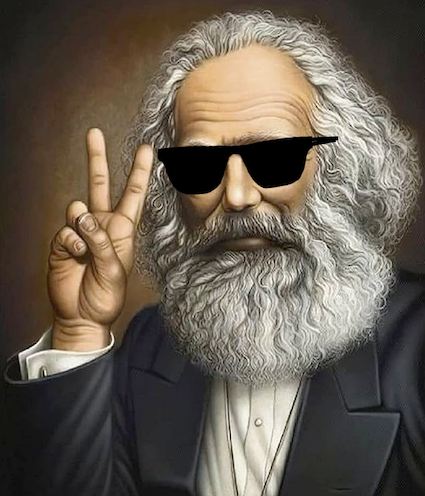
福音主義(evangelical)

解 説:池田光穂
ふ:福音主義・ふくいんしゅぎ:もともとは、1510〜1520年代のドイツとスイスの改革 運動のことであった。しかし、現在では、英語圏での神学において、聖書の至福の権威 をもとに、キリストの贖いによる死を強調する運動をこのように呼ぶ。
| Evangelicalism
(/ˌiːvænˈdʒɛlɪkəlɪzəm, ˌɛvæn-, -ən-/), also called evangelical
Christianity or evangelical Protestantism,[note 1] is a worldwide
interdenominational movement within Protestant Christianity that
affirms the centrality of being "born again", in which an individual
experiences personal conversion; the authority of the Bible as God's
revelation to humanity; and spreading the Christian
message.[1][2][3][4][5] The word evangelical comes from the Greek
(euangelion) word for "good news".[6] Its origins are usually traced to 1738, with various theological streams contributing to its foundation, including Pietism and Radical Pietism, Puritanism, Quakerism, Presbyterianism and Moravianism (in particular its bishop Nicolaus Zinzendorf and his community at Herrnhut).[7][8][9] Preeminently, John Wesley and other early Methodists were at the root of sparking this new movement during the First Great Awakening. Today, evangelicals are found across many Protestant branches, as well as in various denominations around the world, not subsumed to a specific branch.[10] Among leaders and major figures of the evangelical Protestant movement were Nicolaus Zinzendorf, George Fox, John Wesley, George Whitefield, Jonathan Edwards, Billy Graham, Bill Bright, Harold Ockenga, Gudina Tumsa, John Stott, Francisco Olazábal, William J. Seymour and Martyn Lloyd-Jones.[7][9][11][12][13] The movement has long had a presence in the Anglosphere before spreading further afield in the 19th, 20th and early 21st centuries. The movement gained great momentum during the 18th and 19th centuries with the Great Awakenings in Great Britain and the United States. In 2016, there were an estimated 619 million evangelicals in the world, meaning that one in four Christians would be classified as evangelical.[14] The United States has the largest proportion of evangelicals in the world.[15] American evangelicals are a quarter of that nation's population and its single largest religious group.[16][17] As a transdenominational coalition, evangelicals can be found in nearly every Protestant denomination and tradition, particularly within the Reformed (Continental Reformed, Presbyterian, Congregational), Plymouth Brethren, Baptist, Methodist (Wesleyan–Arminian), Lutheran, Moravian, Free Church, Mennonite, Quaker, Pentecostal/charismatic and non-denominational churches.[18][19][20][21][12] |
福音主義(/ˌiːdʒɛlɪkəlˈdʒ,
-ən-/)は、福音主義キリスト教または福音主義プロテスタントとも呼ばれ[注釈 1]、プロテスタントにおける教派を超えた世界的な運動である;
キリスト教のメッセージを広めることである。
[1][2][3][4][5]福音主義という言葉は「良い知らせ」を意味するギリシャ語(euangelion)に由来する[6]。 その起源は通常1738年まで遡ることができ、ピエティズムやラディカルピエティズム、ピューリタニズム、クエーカー主義、長老主義、モラヴィア主義(特 にニコラウス・ジンツェンドルフ司教とヘルンフートにおける彼の共同体)など、様々な神学的な流れがその設立に貢献している。今日、福音派はプロテスタン トの多くの宗派や世界中の様々な教派にまたがっており、特定の宗派には属していない。[10] 福音派プロテスタント運動の指導者や主要人物としては、ニコラウス・ジンツェンドルフ、ジョージ・フォックス、ジョン・ウェスリー、ジョージ・ホワイト フィールド、ジョナサン・エドワーズ、ビリー・グラハム、ビル・ブライト、ハロルド・オケンガ、グディナ・トゥムサ、ジョン・ストット、フランシスコ・オ ラザバル、ウィリアム・J・シーモア、マーティン・ロイド=ジョーンズなどがいる。 この運動は、19世紀、20世紀、そして21世紀初頭にさらに広範囲に広がる前に、長い間イギリス圏で存在感を示していた。この運動は18世紀から19世 紀にかけて、イギリスとアメリカにおける大覚醒によって大きな勢いを得た。 2016年、世界には6億1900万人の福音派がいると推定され、クリスチャンの4 人に1人が福音派に分類されるこ とになる[14]。アメリカは福音派の割合が世界最大である[15]。 [特に改革派(大陸改革派、長老派、会衆派)、バプテスト派、メソジスト派(ウェスレアン・アーミニ派)、ルーテル派、モラヴィア派、自由教会、メノナイ ト派、クエーカー派、ペンテコステ・カリスマ派、超教派の教会に多い[18][19][20][21][12]。 |
| https://en.wikipedia.org/wiki/Evangelicalism |
リンク先
文献
その他の情報
Copyleft, CC, Mitzub'ixi Quq Chi'j, 1997-2099






--
☆
 ☆
☆